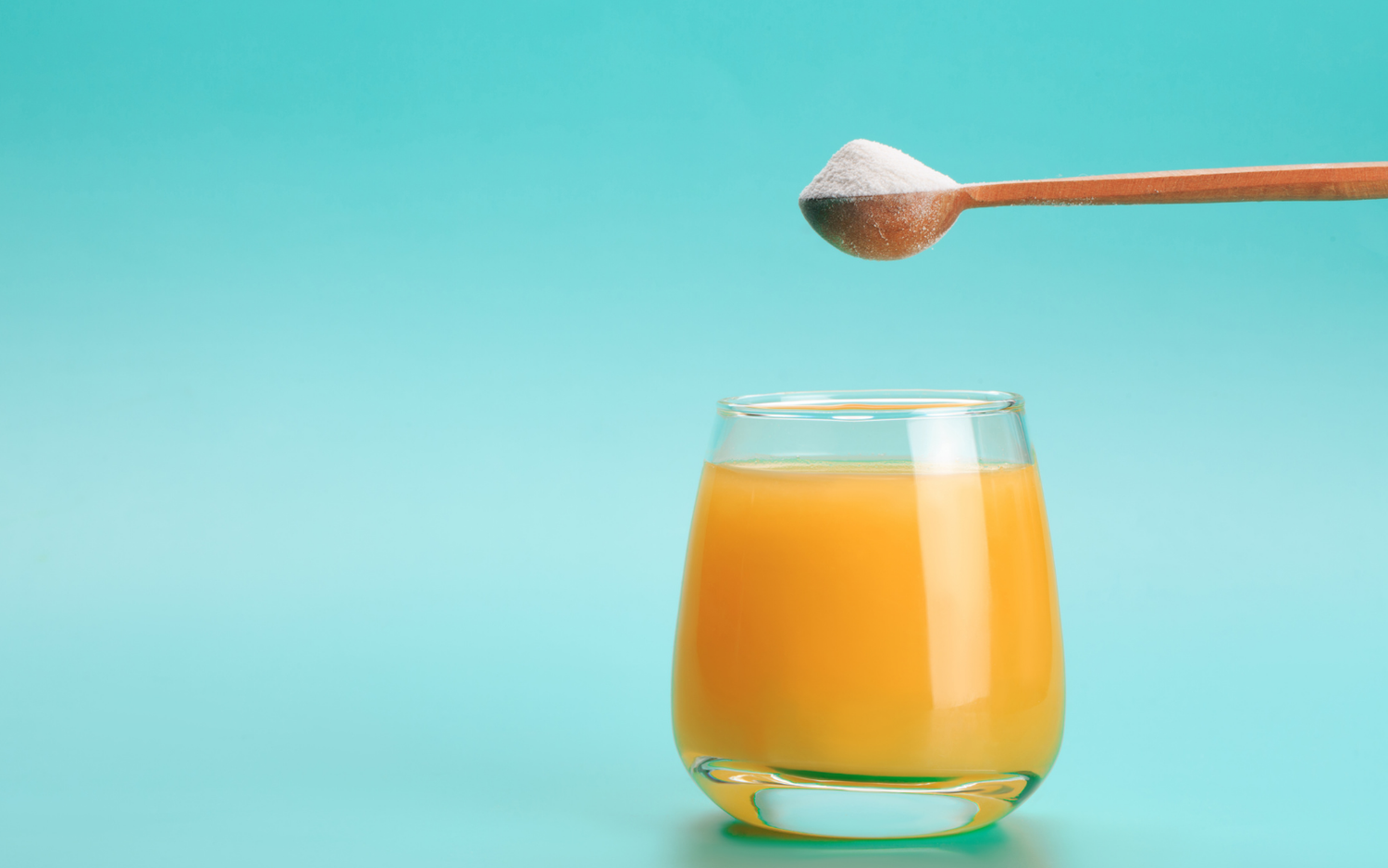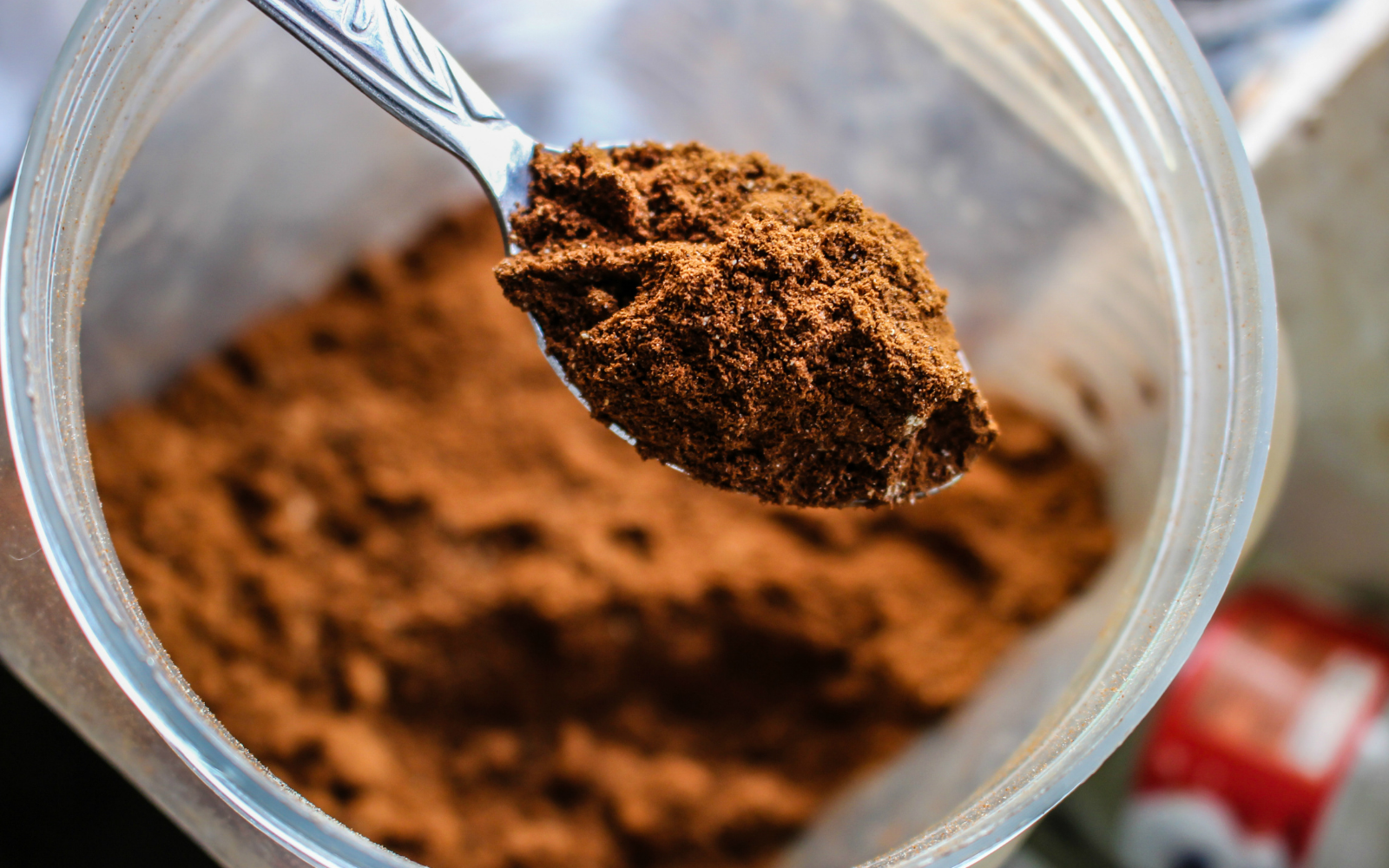Collagen is everywhere these days. You can’t look far without finding collagen. Drink mixes, capsules, protein powders – the list goes on.
You probably already know that collagen is an excellent supplement for skin. Maybe you even know about the benefits of collagen for bone and muscle health.
Many people aren’t aware, however, that collagen is actually a great supplement for improving hair health – in both men and women.
In this post, we’ll go over the science-supported evidence of collagen for hair health and explain everything else you need to know about this vital substance.

What Is Collagen?
When we hear about collagen, it’s usually in the context of skin care products, but did you know that collagen is the most abundant protein in the human body? Collagen is found in nearly every cell and it’s often called the “glue” that holds everything together. In the skin, collagen is responsible for maintaining elasticity. Your body can make 11 nonessential amino acids on its own. However, there are nine essential amino acids you need to consume through diet for building strong muscles and carrying out cell processes. Collagen contains three important essential amino acids: lysine, proline, and glycine. As we age, our natural collagen production slows down. Vitamin C can help your body synthesize collagen so it’s important to consume enough vitamin C if you’re looking for natural ways to improve collagen production. Collagen peptides are small bioactive compounds inside collagen that are easier for your body to digest and process. You’ll usually find collagen peptides inside your collagen supplements. In terms of hair health, proline is crucial for creating hair and forming keratin. You’ll likely find collagen powder (also known as hydrolyzed collagen) available in powder or supplement form. Hydrolyzed collagen is completely flavorless and dissolves in water. You can add powdered collagen to smoothies for an extra boost or take it as part of a supplement regimen.Collagen Vs. Gelatin
Gelatin is the key ingredient in Jell-O. When added to food, it turns liquid into a semi-solid texture. Unlike collagen, gelatin needs higher temperatures to dissolve. Collagen, on the other hand, can dissolve into a liquid at any temperature. However, collagen and gelatin are very similar – they even come from similar substances. If you consume gelatin, you also consume collagen peptides. So, why not just eat more gelatin? Collagen peptides found in collagen supplements are easier to digest and process in the body. Consuming collagen instead of gelatin means you get more collagen peptides and ensure that they go to the places in the body that need them.Are Collagen Supplements Good for Hair?
Skin health plays an important role in hair structure and health. Since collagen is important for skin health and elasticity, it’s a crucial substance for hair health. Not to mention, collagen peptides play a specific role in keratin production: a key protein for healthy hair. Here’s how collagen supports healthy hair.Collagen for Hair Loss
Free radicals have an interesting effect on the body. Not only do they contribute to disastrous diseases, but they also lead to hair loss. Free radical damage from environmental toxins directly contributes to hair loss by damaging follicles. Unfortunately, collagen production slows with age and this contributes to hair loss. Fortunately, collagen supplementation can save the day by preventing damage to hair follicles. Prevention is the key to avoiding hair loss. Collagen can avoid male pattern baldness by supporting hair follicles before they become damaged. Remember that collagen comprises 70% of the skin’s surface where the hair is produced so healthy skin is the key to hair growth. Proline (found in collagen) is also the main amino acid responsible for creating keratin: an important protein for healthy hair. (1) Consuming plenty of collagen is crucial for keeping hair healthy on your scalp and improving appearance.Collagen for Hair Growth
Maybe you’re not concerned about hair loss per se. Consuming plenty of collagen can also prevent graying, boost hair growth, and improve the appearance of hair. One study found that those who take collagen may be able to avoid age-related graying. The key to hair growth, however, is a healthy scalp. Collagen improves the health of hair follicles and skin. (2) Studies show that consuming plenty of collagen can help you avoid damaging follicles which can promote hair growth. (3) As a protein, keratin strengthens hair and improves shine. Since you need proline to create keratin, taking in plenty of proline is the most important thing you can do to improve your hair’s shine, growth, and appearance.Other Ways to Improve Hair Health
Focusing on diet and your environment are the first two things you should do to improve overall hair health. In addition to collagen, these vitamins and minerals are the most important substances you can consume for a head full of luscious locks.Zinc
You don’t hear about zinc too much but it does play an important role in hair health. If you find yourself shedding a little more hair in the drain and brush than you’re comfortable with, you may be facing a zinc deficiency. Where can you find zinc throughout your diet?- Meat – especially shellfish (avoid salty and processed meat like deli slices and sausage)
- Nuts and seeds – especially Brazil nuts, walnuts, and pecans
- Beans
- Eggs
- Whole grains
- Dark chocolate
Omega-3 Fatty Acids
Studies among women show that consuming plenty of omega fatty acids – particularly 3 and 6 – can help slow hair loss and contribute to healthy hair growth in the first place. (4) It’s difficult to consume enough omega fatty acids through diet alone. Instead, consider taking a fish oil supplement each day. Look for a high-quality supplement to avoid a fishy aftertaste.Protein
Hair is made of protein. Keratin is also a protein. Consuming protein is the best way to nourish healthy hair from inside your body. If you feel like your protein is lacking, consider adding some unflavored protein powder to various meals. You can also apply protein to your hair topically with specialized creams and treatments.Shampoo and Maintenance
While avoiding sulfates and conditioning is important, it’s even more crucial to select the right type of shampoo based on your needs. Talk to a stylist to help choose the right shampoo based on your needs. If your hair is thin and oily, you’ll need a different shampoo than someone with thick and dry hair. Hydration is the most important aspect in all cases. If your scalp is oily, this doesn’t necessarily mean that your hair is well hydrated. Instead, look for a shampoo to reduce oil on your scalp while providing nourishment to your strands. In general, everyone should take advantage of these maintenance tips.- Don't wash your hair on a daily basis. Let the natural oils accumulate.
- Use the lowest heat setting when drying and straightening.
- Avoid split ends with regular haircuts.
- Switch up the placement of your hair ties and bobby pins to avoid breakage.
- Massage your scalp every day (or treat yourself to regular scalp massages).



